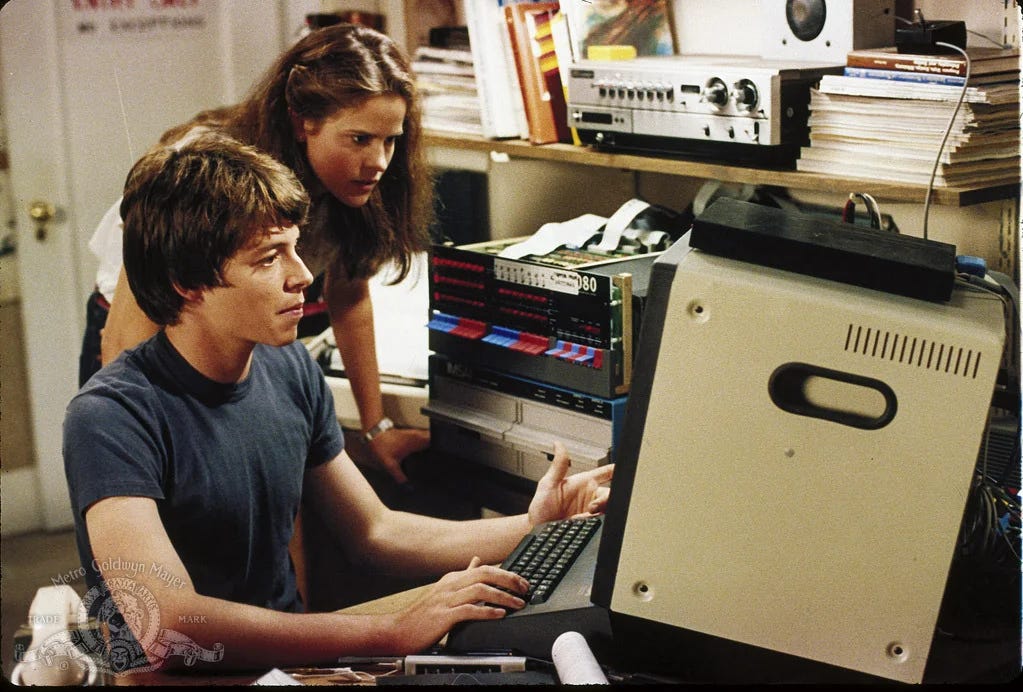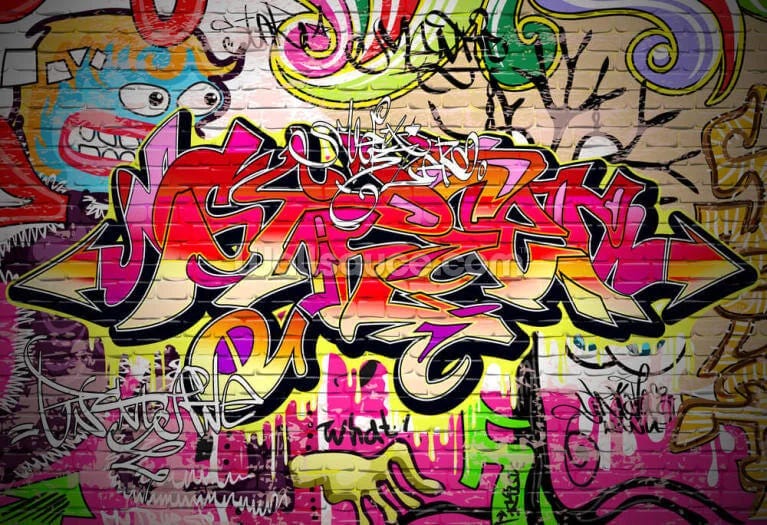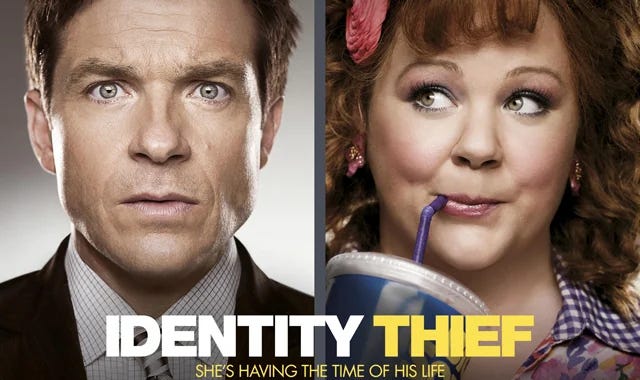"I was addicted to hacking, more for the intellectual challenge, the curiosity, the seduction of adventure; not for stealing, or causing damage or writing computer viruses."
"Hacking to me was like a video game. It was about getting trophies. I just kept going on and on, despite all the trouble I was getting into, because I was hooked."
"I could have evaded the FBI a lot longer if I had been able to control my passion for hacking."
Kevin Mitnick
I moved to the States for love. I had met a girl over the Internet. This was in the 1990s, before the Internet was widely used by the public.
As a teenager, I used to be a computer geek, when not everyone had a computer yet. I was a hacker. If you've ever seen the movie War Games, you get the idea. We used unbelievably slow dial-up modems and 8-bit computers. It was the stone age of the PC revolution.
My friends and I didn't hack into government computers to start World War 3 though. We didn't even hack into bank computers to steal millions. All we did was play video games, before playing video games became mainstream.
And if the games had copy protection, we removed the protection so we could copy the games for our friends. That was called "cracking" a game. We felt like the Robin Hoods among computer geeks, because we "stole" from the rich software companies and gave to the poor kids who couldn't afford to buy games.
There was an active hacking/cracking scene in Europe, America and Australia, and hackers/crackers or "sceners" from all over the world met at gatherings that were called copy parties.
I never liked to be a follower. I didn't want to be a member of someone else's crew, so I started my own cracking group. It didn't matter to me if my group wasn't going to be the biggest or the best, as long as it was my own. Why be a follower when you can be a leader?
At first I only gave floppy disks with my cracked games to my friends in my own class at school. Soon kids in other classes got my games from their friends. It didn't take long until I was known among kids at other schools in my hometown, the ancient Roman city of Aachen.
After a few months, my class went on a school trip to Trier, another old Roman city, a few hundred miles away from Aachen. We were supposed to go explore the ancient downtown area on our own, without adult supervision.
But it was raining, so I decided to hang out in the computer section of a department store instead. I played some of the video games I had cracked, and caught the attention of some local kids.
Cracking groups back then used to put their own little intro or cracktro in front of a cracked game. It's similar to the 20th Century Fox or Universal logo you see at the beginning of a movie. That was our way of getting famous. Cracktros with our crew's name were basically high tech graffiti.
Every time someone played a game we cracked, they had to look at our name first. That's really what it was all about. Not money. Just fame. Kinda like kids who spray graffiti on walls all over town, to spread their name.
Anyway, the local kids in that department store recognized my hacking crew's name in front of the games I was playing.
That was the first time I realized that I was getting famous in the hacking scene. People in cities hundreds of miles away knew my name. It was a pretty amazing feeling. As I found out later, it was addicting.
At that department store in Trier, I ended up recruiting one of those local kids into my group that day, because he turned out to be an excellent programmer.
As time went by, my crew grew larger. At first I had only recruited some of my classmates at school. But now we had grown so much, that we had members all over Germany, Belgium, Holland, France, Switzerland, Norway, Sweden, Denmark, England, Scotland, Ireland, Australia and America.
Everyone in the hacking scene knew us. We were at the very top of the game. Our cocky slogan was "Europe's #1." That didn't sit too well with some competing hacking crews. There was constant bickering between the various crews about who was the best.
A bit like the East Coast – West Coast war in the hip hop scene. The more successful you were, the more haters talked trash about you. And we had a lot of haters. But our fans far outnumbered our enemies.
Going to copy party gatherings was an amazing feeling. Everyone knew me and my crew. Everyone wanted to shake my hand or talk to me. I felt like a rockstar. I was literally world-famous. Among sceners anyway.
In order to spread our cracks to as many people as possible, cracking crews used online bulletin board systems, or BBS for short. They were the precursors to Internet websites.
Each crew had members that specialized in different aspects of hacking. Almost like different members in a drug gang have different jobs. Some cook the drug, some stand guard, some sell the product on the streets.
In cracking crews back then, original suppliers provided the games through their connections at game stores or software companies. Crackers removed the copy protection from the games. Swappers exchanged floppy disks with the swappers of other crews. Spreaders uploaded the games to an online BBS to distribute the games as quickly as possible to as many people as possible. And leechers downloaded the latest cracks from other crews' BBS.
But in order to connect to a BBS, our computers had to make calls over regular phone lines. And long distance calls were still very expensive back then. There were no unlimited calling plans yet. International calls were virtually unaffordable.
So every elite crew had members called phreakers. They were the ones who provided the means to make free international phone calls to connect to a BBS on the other side of the globe.
The real world needs oil to move wares around. The hacking scene back then needed ways to make free phone calls to move digital warez around.
Usually phreakers got credit cards and passed them on to the spreaders, so they could use the cards to make expensive phone calls for free, to upload the latest cracked games to a bunch of boards online.
Phreakers had several different ways to get their hands on credit cards. The most popular way was phishing. Basically the phreakers called a bunch of random numbers and tried to convince the people on the other end that they were talking to an employee of the fraud department of their credit card company.
If the phreaker was good at his game, the person on the other end would give him all their personal information, their credit card, social security number, date of birth, etc.
It's amazing how gullible people are when you use the right inflection in your voice. Random strangers will trust you very quickly, if you speak to them calmly, quietly, and with confidence.
If you saw the movie Identity Thief, you get the idea. Melissa McCarthy plays a phreaker who phishes Jason Bateman's identity, by convincing him that she works for the fraud department of his credit card.
Steve Wozniak, who co-founded Apple with Steve Jobs, once said: "A lot of hacking is playing with other people, you know, getting them to do strange things."
A good hacker is a master manipulator. Some hackers are good at manipulating computer systems, others are good at manipulating brains.
Nowadays identity theft is a billion dollar industry. Even organized crime, like the Russian mob, employ phreakers to steal credit cards and then the mob uses these cards to make online purchases. There is a black market online, where hackers buy and sell people's information.
But back then, we weren't interested in making online purchases or selling people's ID to the mob. Crews back then just used the credit cards to make free phone calls around the world to spread their cracked games.
The phone system in Europe was more advanced than the American phone system. Countries like Germany had switched to an all digital phone network long before the US did. And on digital lines, it was much easier for the authorities to find and trace hackers who abused credit cards to make calls.
So European hackers called the free 800 numbers of American phone companies, and from those American lines called back to European lines with stolen credit cards. The American phone lines were still analog, and didn't allow the companies to trace the calls back. So European hackers became invisible by rerouting all their calls through America.
But then at some point the US phone companies finally switched over to a digital network as well, and suddenly phreaking became a lot more dangerous. Hackers started getting arrested left and right.
So more and more crews relied on a different way to make free phone calls, called "blue boxing."
Instead of using someone else's credit card, hackers played a tone into the phone that had the exact same frequency as the tone the phone companies used to release a line for a free phone call.
So, simply by playing that tone, you could suddenly make a free phone call to China or Europe.
A phreaker who called himself Captain Crunch had discovered by accident, that the toy whistle that came in Captain Crunch cereal boxes played exactly the right tone at exactly the right frequency to get a free phone line.
He became a legend in the hacking scene.






